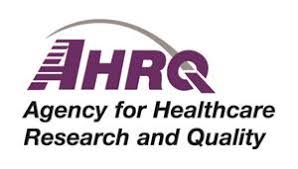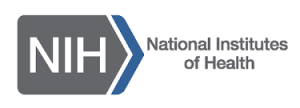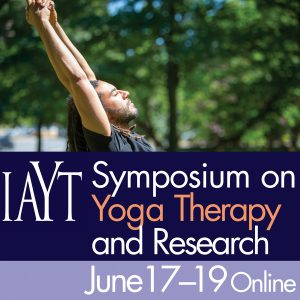Bolstering Integrative Pain Workforce through Scholarships to UVM Conference

To grow and strengthen the CIPM workforce, particularly in underserved communities, AACIPM, in collaboration with Integrative Medicine for the Underserved and the University of Vermont, provided 30 diverse practitioners with scholarships to attend The UVM Integrative Health’s second integrative pain management conference held on May 7th. Wayne Jonas, MD gave an inspiring keynote examining How Healing Works. Plenaries included Helene Langevin, MD, Director of the NIH’s National Center of Complementary and Integrative Health, sharing exciting research progress, and Josh Plavin, MD, MPH, MBA, Medical Director at BC/BS of VT together with Jon Porter, MD, Medical Director of the VT Comprehensive Pain Program discussing lessons learned from their innovative payor/provider partnership at UVM. Numerous breakout sessions provided quality, practical information. The final plenary session explored the national landscape of comprehensive integrative pain management and included AACIPM’s Amy Goldstein, MSW, Christine Goertz, DC, PhD, Duke University, and Samantha Simmons, MPH, Whole Health in the States initiative. You can view Amy’s slides here.
AACIPM was thrilled to collaborate with IM4US and UVM to provide scholarships to providers caring for the underserved, who would have been unable to attend without this support. So far, 100% of survey responses (from scholarship recipients) have said that they gained new tools and insights from the conference, such as: how to ask better questions during initial assessments; the need to give more time for interventions to work with each progression; the need to rest patients with high levels of inflammation before initiating an exercise program; insight into herbs, food, and supplements; information about the various types of providers and how/when to refer; and, the importance of what the patient finds meaningful. A more detailed survey summary will be forthcoming. To learn more about UVM’s recent conference, see their post-conference highlights.
HHS Highlights
AHRQ Requests Comments on Integrated Pain Management Programs, AACIPM to Hold Call
 The Evidence-based Practice Center (EPC) Program at the Agency for Healthcare Research and Quality (AHRQ) has posted the draft report for their systematic review on Integrated Pain Management Programs, and this draft is open to review and feedback until June 21, 2021.
The Evidence-based Practice Center (EPC) Program at the Agency for Healthcare Research and Quality (AHRQ) has posted the draft report for their systematic review on Integrated Pain Management Programs, and this draft is open to review and feedback until June 21, 2021.
In late 2020, AACIPM facilitated a multi-stakeholder discussion regarding the research protocol that underlies this report that ultimately led to AACIPM submitting a sign-on letter to AHRQ on behalf of 70 diverse stakeholders. Essentially, we were concerned that the research protocol’s inclusion and exclusion standards, as well as the short timeframe for response, would result in relevant data being missed by AHRQ’s systematic review.
As a follow up to that call, and to explore the possibility of submitting further comments in response to this draft report, AACIPM will be holding a call for interested stakeholders on June 3, 2021 at 4:00 ET. Please contact Amy Goldstein if you are interested in attending this call.
AHRQ Revises Policy on the Inclusion of Priority Populations in Research
AHRQ has revised its policy on the Inclusion of Priority Populations in Research. With the reissuance of this policy, AHRQ has reiterated its continued commitment to priority populations in health services research, including: inner city; rural; low income; minority; women; children; elderly; and those with special health care needs, including those who have disabilities, need chronic care, or need end-of-life health care. In addition to the populations above, which have been long-time priorities of AHRQ, the definition of “priority populations” has now been expanded to include members of underserved communities: Black, Latino, and Indigenous and Native American persons, Asian Americans and Pacific Islanders and other persons of color; members of religious minorities; lesbian, gay, bisexual, transgender, and queer (LGBTQ+) persons; persons with disabilities; persons who live in rural areas; and persons otherwise adversely affected by persistent poverty or inequality.
This updated policy will be broadly implemented across the research that AHRQ supports and conducts, applying to all grant applications, solicitations for research contracts, and AHRQ intramural studies.
NIH Pain Consortium Held Meeting May 24-25
 On May 24th-25th, the NIH Pain Consortium convened the 16th Annual NIH Pain Consortium Symposium on Advances in Pain Research via a virtual platform. The symposium: “Pain and Pandemics: Challenges and Opportunities in the Current Social and Healthcare Climate”, addressed the impact of the current socioeconomic, healthcare and social justice challenges on pain management. Topics included the impact of COVID-19 on acute and chronic pain conditions, comorbidities and disparities, with a focus on vulnerable populations. Keynote speakers were Julie Fritz, PhD, PT, FAPTA, Univ. of Utah and Robert Malenka, MD, PhD, Stanford University. The forum included discussions of current opportunities for interventions to reduce health disparities and increase effective pain management across populations.
On May 24th-25th, the NIH Pain Consortium convened the 16th Annual NIH Pain Consortium Symposium on Advances in Pain Research via a virtual platform. The symposium: “Pain and Pandemics: Challenges and Opportunities in the Current Social and Healthcare Climate”, addressed the impact of the current socioeconomic, healthcare and social justice challenges on pain management. Topics included the impact of COVID-19 on acute and chronic pain conditions, comorbidities and disparities, with a focus on vulnerable populations. Keynote speakers were Julie Fritz, PhD, PT, FAPTA, Univ. of Utah and Robert Malenka, MD, PhD, Stanford University. The forum included discussions of current opportunities for interventions to reduce health disparities and increase effective pain management across populations.
NCCIH Focuses on Whole Person Health in New Strategic Plan
 The National Center for Complementary and Integrative Health (NCCIH) has released, “NCCIH Strategic Plan FY 2021–2025: Mapping a Pathway to Research on Whole Person Health.” The plan, which builds on a foundation the NCCIH has fostered for more than two decades, explains how they will continue to expand the Center’s current activities while advancing new strategies and ideas with a new focus on Whole Person Health.
The National Center for Complementary and Integrative Health (NCCIH) has released, “NCCIH Strategic Plan FY 2021–2025: Mapping a Pathway to Research on Whole Person Health.” The plan, which builds on a foundation the NCCIH has fostered for more than two decades, explains how they will continue to expand the Center’s current activities while advancing new strategies and ideas with a new focus on Whole Person Health.
AACIPM submitted two letters to NCCIH during the public comment process. One in July 2020 and the second in March 2021. We are pleased with the progress and the final draft.
Expanding the definition of integrative health to include whole person health, the new plan empowers stakeholders to improve their health in the areas of biological, behavioral, social and environmental.
The new strategic plan has five objectives:
- Advance fundamental science and methods development.
- Advance research on the whole person and on the integration of complementary and conventional care.
- Foster research on health promotion and restoration, resilience, disease prevention, and symptom management.
- Enhance the complementary and integrative health research workforce.
- Provide objective, evidence-based information on complementary and integrative health interventions.
NCCIH Integrative Medicine Research Lecture Series: Tech-Based Treatment for Chronic Pain
 Alicia Heapy, Ph.D., will present “Cooperative Pain Education and Self-Management (COPES): A Technology-Assisted Intervention for Pain” on Tuesday, June 8th, from noon to 1 p.m. ET. No registration is necessary to view this streamed lecture on NIH VideoCast and Facebook Live, where it also will be archived.
Alicia Heapy, Ph.D., will present “Cooperative Pain Education and Self-Management (COPES): A Technology-Assisted Intervention for Pain” on Tuesday, June 8th, from noon to 1 p.m. ET. No registration is necessary to view this streamed lecture on NIH VideoCast and Facebook Live, where it also will be archived.
Evidence supports behavioral and self-management therapies for people with chronic pain, but there are many obstacles to their widespread implementation and uptake. Technology offers a way to address several of these barriers. Dr. Heapy will discuss research she is leading on COPES, a nondrug, technology-based intervention for pain.
Dr. Heapy is an Associate Professor of Psychiatry at the Yale School of Medicine; Associate Director of the Pain Research, Informatics, Multimorbidities, and Education (PRIME) Center, which is part of the Veterans Affairs Connecticut Healthcare System; and an NCCIH grantee.
Veteran and Family Well-Being Free Webinar Series
How the Mind and Body Experience Pain
June 2 and 9, 2021 from 12:00-1:00pm EST

 The second series from the Chronic Pain Centre of Excellence for Canadian Veterans focuses on the evolution of pain management and current best practices in evidence-based interdisciplinary care. The series targets a broad audience of Veterans, their families, case managers, and health care professionals.
The second series from the Chronic Pain Centre of Excellence for Canadian Veterans focuses on the evolution of pain management and current best practices in evidence-based interdisciplinary care. The series targets a broad audience of Veterans, their families, case managers, and health care professionals.
The series will feature a collaboration of speakers presenting information on how the neuroscience of chronic pain, the influence of sex/gender, the overlap between care for chronic pain and operational stress injuries, and an overview of the challenge facing the Canadian Veteran population.
Replays from CPCoE’s first series can be found here.

Discount Available for June Symposium on Yoga Therapy and Research
 The International Association of Yoga Therapists’ SYTAR symposium will be held online from June 17-19, 2021. The symposium will feature wide-ranging education, dynamic keynotes aimed at rich professional, and personal development. Key sessions of interest include: Yoga and Whole-Person Health Keynote presented by Helene Langevin, NCCIH; a Town Hall on Conversations about Diversity, Equity, and Inclusivity; and Common Interest Sessions on Integrating Mental Health and Yoga Therapy and Yoga Therapy Assessments.
The International Association of Yoga Therapists’ SYTAR symposium will be held online from June 17-19, 2021. The symposium will feature wide-ranging education, dynamic keynotes aimed at rich professional, and personal development. Key sessions of interest include: Yoga and Whole-Person Health Keynote presented by Helene Langevin, NCCIH; a Town Hall on Conversations about Diversity, Equity, and Inclusivity; and Common Interest Sessions on Integrating Mental Health and Yoga Therapy and Yoga Therapy Assessments.
If you’d like to attend this online conference, use Promo Code AACIPM2021 for $30 off registration.
Message from the Director
 In our house, summertime has begun for our 5th and 9th graders who just finished what has undoubtedly been their toughest school year to date. As I see my sons’ burnout exhaustion evolving with the promise of more sleep and fun in the sun, it makes me think about the pace and burnout during covid for all our front line workers. As our nation’s situation evolves, the burnout is real, and the luxury of a “summer break” to rejuvenate is not very common.
In our house, summertime has begun for our 5th and 9th graders who just finished what has undoubtedly been their toughest school year to date. As I see my sons’ burnout exhaustion evolving with the promise of more sleep and fun in the sun, it makes me think about the pace and burnout during covid for all our front line workers. As our nation’s situation evolves, the burnout is real, and the luxury of a “summer break” to rejuvenate is not very common.
As AACIPM continues to focus on meaningful collaboration to achieve our shared goals of advancing whole person, multimodal, multidisciplinary pain management for all, we are committed to creating important resources to connect more dots. This will include more information about self care and pain management, so stay tuned.
Also, if you missed my blogpost from last month about connecting the dots with Whole Health, CARA 3.0 and the National Academies of Medicine as a catalyst, you can view it here. This will be another important topic in the coming months.
Onward and Upward!
Amy
Relevant Reading
![]() How Mind-Body Therapy Can Help Soothe Pain, Chicago Parent, May 27
How Mind-Body Therapy Can Help Soothe Pain, Chicago Parent, May 27
Opinion: You’re stronger than your chronic pain, Daily Emerald, May 27
Chronic Pain Self-Management Workshops For Rural Residents Offered Online Through WV School Of Osteopathic Medicine, WV Public Broadcasting, May 25
Video: What’s New in NICE Chronic Pain Management Guidance?, Medscape UK, May 24
Public Opioid Policy May Interfere with Hospice Patients’ Pain Management, Hospice News, May 17
Pain Management in the ICU Is Complex, Pharmacy Times, May 13
Seeing the Elephant: A Systematic Scoping Review and Comparison of Patient-Centeredness Conceptualizations from Three Seminal Perspectives, Dovepress, April 29
Health officials plan major research on COVID-19 long-haulers, Roll Call, April 30
Doctors More Likely to Prescribe Opioids to Covid ‘Long Haulers,’ Raising Addiction Fears, KHN, April 28
Feedback
We welcome your input! What do you like? Do you have a contribution for an upcoming newsletter? Send us your comments, suggestions, or contributions.
